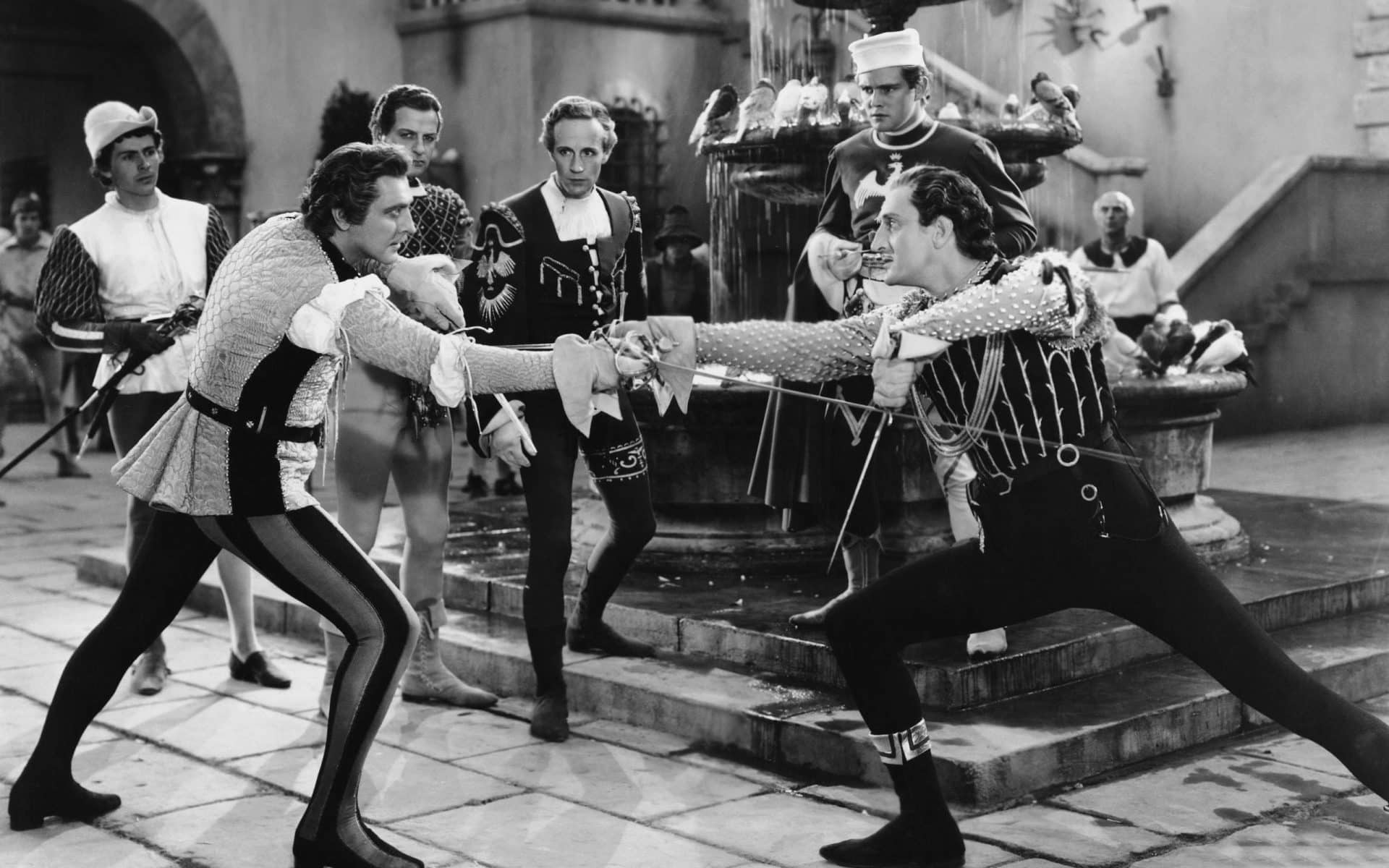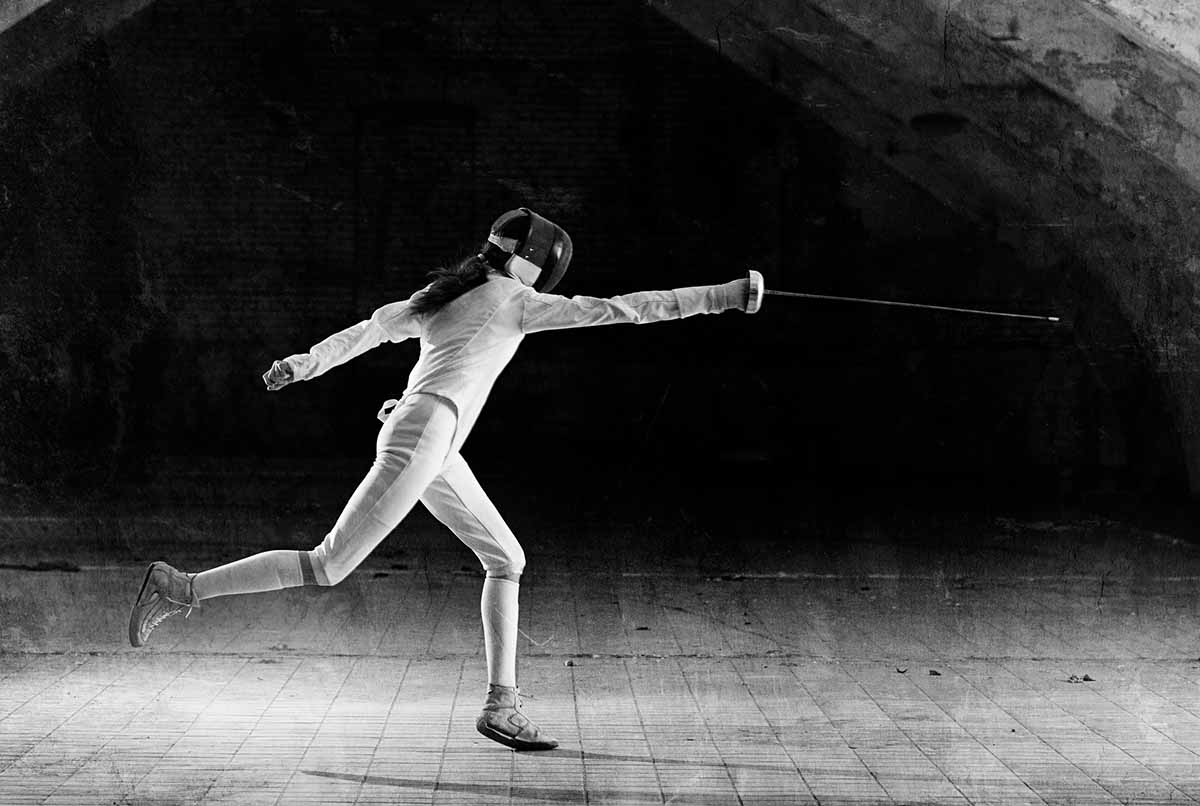After a few minutes of tripping over my thoughts, I explained I was trying to understand the word using the word itself, which wouldn’t work. So, onto my research list, it went. You see, the beauty of language is its diverse mix, many words borrowed and shared, and “touché” is no exception.
The Origin Story
“Touché” is a French term that made its way into the English-speaking world, much like “C’est la vie” or “Bon appétit”. It’s proof that language, like a good recipe, often takes a pinch of something from here and a dash of something from there…
It originates from the elegant and strategic world of fencing.
- Thrust: A quick forward movement with the tip of the sword.
- Parry: A defensive movement to block or deflect a thrust.
In this sport, ‘touché’ is what a humble and well-mannered fencer would say to acknowledge that they’ve been hit (or ‘touched’) by their opponent’s sword. It’s like saying, “Good shot, you got me!” or “Nice one, point to you.”
A Twist into Modern Conversation
Are you curious how ‘touché’ went from being an obscure term in fencing to a common exclamation? Well, it’s all thanks to the magic of media and pop culture. Those movies and TV shows we veg out in front of played a big part in spreading this term.
In the past, ‘touché’ was purely a technical term used in fencing to commend a successful point scored. Yet, as fencing began to feature in films and other popular forms of media, audiences found the term both exciting and intriguing.

The Hollywood Effect
Okay, let’s rewind and play out a classic Hollywood scene. Picture this in your mind:
Two exquisitely dressed gentlemen square off in an opulent room. They unsheathe their swords, and with cold resolve in their eyes, they lunge and parry with exceptional skill. Suddenly, one of them connects with an expert hit. He withdraws his blade, smiles smugly, and says, ‘touché’.
Scenes like this swept Hollywood’s silver screens, and it’s only human nature that we mimic what we see and hear, particularly when it is as impactful and dramatic as this. As a result, the term ‘touché’ found its way into common parlance, used as an expression of acknowledging a well-made point.
So, when your friend fires back with a wisecrack or an excellent counterargument, you can use ‘touché’ to concede their point. See? It’s that simple, like how we say ‘Ouch!’ when we get hurt.
Word Play with Love
But remember, language is a beautiful game. The key to winning is not just to understand the rules but to love how the game is played. The word ‘touché’, is just one of the countless examples of how language can change and adapt over time.
Language is not static—it lives, breathes, changes, and grows like us. It’s a part of our journey, shaping our understanding of the world. Take this newly learned term and run with it! Use it wisely, share it with your friends, and you might teach others something or two about the word ‘touché’.
Oh – here is another one for you – “foiled again”.


